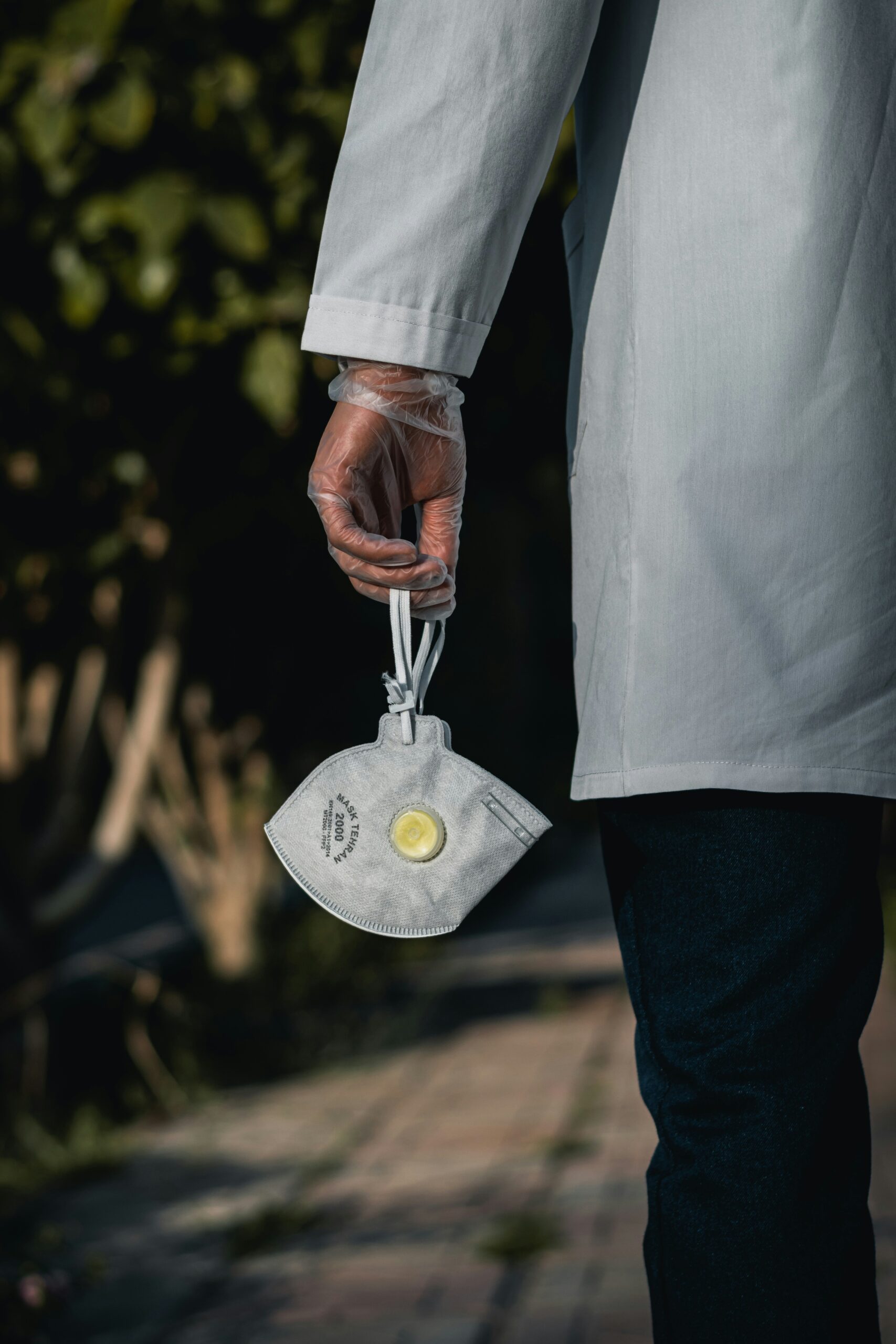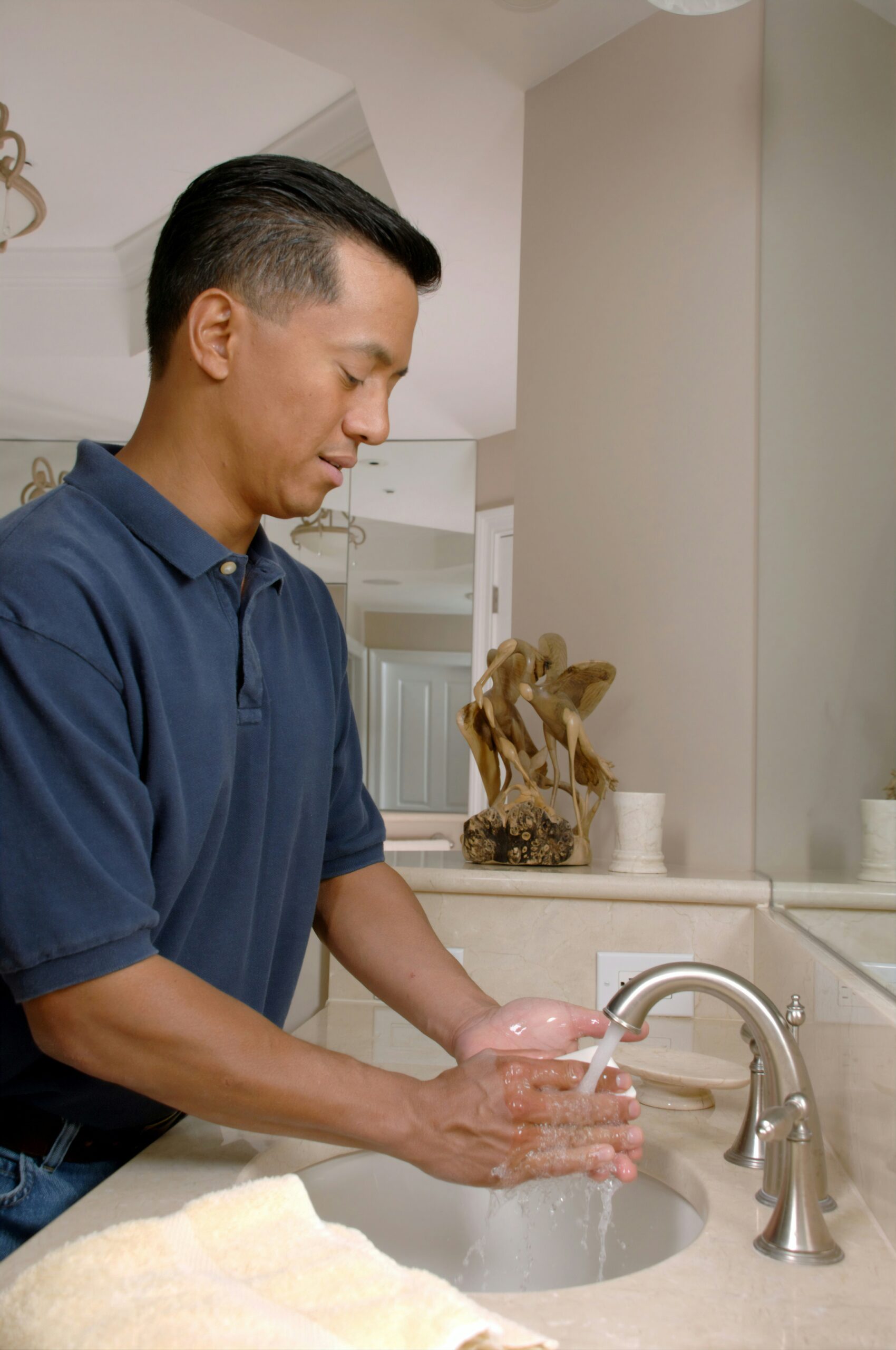Have you ever woken up to a pungent smell coming from your bathroom in the morning? If you have, you’re not alone. Many people experience a strong odor in their urine when they first wake up, and it’s natural to wonder if it’s a hygiene issue. In this article, we’ll explore whether or not the smell of your urine in the morning is related to hygiene, and what factors may be causing the unpleasant odor. So, if you’ve ever found yourself asking, “Is it related to hygiene if my urine smells bad in the morning?” then keep reading to find out the answer.
Understanding the Basics of Urine Odor
What causes urine to smell?
Urine odor can be influenced by various factors, including the concentration of certain substances, the foods and drinks consumed, and even certain medical conditions. The distinct smell of urine is primarily due to the presence of urea, a waste product formed when the body breaks down proteins. However, other compounds, such as ammonia and sulfur, can also contribute to the odor.
Normal vs. abnormal urine odor
In most cases, urine has a somewhat distinct odor that is considered normal. However, there are instances where urine odor can indicate an underlying health issue. Normal urine odor is usually mild and somewhat inoffensive. It may have a slightly nutty or ammonia-like scent. On the other hand, abnormal urine odor can be strong, foul, or particularly unpleasant. It is important to pay attention to any significant changes in urine odor, as it can be a symptom of an underlying problem.
Factors influencing urine odor
Several factors can influence the smell of urine. Diet plays a crucial role, as certain foods and drinks can directly affect urine odor. Dehydration can also concentrate the urine, leading to a stronger smell. Additionally, medications and medical conditions can contribute to changes in urine odor. Understanding these factors can help you determine the potential causes of bad smelling urine and take appropriate actions to address them.
Why Does My Urine Smell Bad in the Morning?
Dehydration impact on urine smell
Waking up to bad smelling urine in the morning can be attributed to dehydration. During the night, your body naturally loses water through sweating and breathing, which can result in concentrated urine. Concentrated urine tends to have a stronger, more pungent odor. Therefore, ensuring adequate hydration by drinking enough water throughout the day and even before bed can help alleviate this issue.
Effect of the food and drinks consumed
The food and drinks you consume can significantly impact the odor of your urine, both in the morning and throughout the day. Some foods, such as asparagus, can give urine a distinct and often unpleasant smell. Strong-smelling spices, like curry or garlic, can also contribute to a change in urine odor. Similarly, certain beverages, such as coffee or alcohol, can influence the smell of urine. Being mindful of your dietary choices and moderating the consumption of these foods and drinks can help manage the odor.
Medications contributing to bad urine smell
Certain medications can also contribute to bad smelling urine. Antibiotics, for example, can alter the composition of urine, resulting in a stronger odor. Additionally, some vitamins, such as B vitamins, can cause urine to have a distinct odor. If you notice a change in urine odor after starting a new medication, it may be worth discussing with your doctor to determine if it is a side effect and whether any adjustments can be made.

Link Between Hygiene and Urine Odor
Potential influence of personal hygiene
Personal hygiene practices can play a role in urine odor to a certain extent. Maintaining good hygiene habits, such as regular bathing, can help minimize the buildup of bacteria and sweat that may contribute to unpleasant odors in the genital area. However, it is important to note that while personal hygiene can have some impact on urinary odor, it is not always the sole or primary cause.
Does poor hygiene lead to bad smelling urine?
While poor personal hygiene can contribute to overall discomfort and odors in the genital area, it is not the primary cause of bad smelling urine. Urine odor is more closely associated with factors such as diet, hydration, medications, and underlying medical conditions. However, practicing good hygiene can help minimize any potential odors and promote overall genital health.
Importance of regular bathing and clean underwear
Regular bathing is essential for maintaining overall hygiene, including the genital area. It helps remove sweat, bacteria, and other substances that can contribute to odor. Using clean underwear made of breathable materials is also important, as it allows for proper ventilation and reduces the likelihood of bacterial growth. These simple practices can contribute to maintaining a fresh and clean scent throughout the day.
Common Medical Conditions that Cause Bad Smelling Urine
Urinary tract infections (UTI)
One of the most common medical conditions associated with bad smelling urine is a urinary tract infection (UTI). UTIs occur when bacteria enter the urinary tract and multiply, leading to inflammation and often causing a strong, unpleasant odor in urine. Other symptoms of UTIs may include frequent urination, pain or burning sensation during urination, and cloudy or discolored urine. Seeking medical attention and appropriate treatment is crucial if a UTI is suspected.
Diabetes
Diabetes can also play a role in urine odor. When blood sugar levels are not properly controlled, the body may start to break down fats for energy instead of glucose, resulting in the production of ketones. These ketones can be excreted through urine, leading to a distinctive, sweet, and sometimes unpleasant smell. It is essential for individuals with diabetes to manage their blood sugar levels effectively to prevent any potential changes in urine odor.
Liver diseases
Certain liver diseases, such as cirrhosis or hepatitis, can cause a noticeable change in urine odor. This is primarily due to the liver’s reduced ability to remove toxins and process waste products effectively. As a result, compounds like ammonia and sulfur may accumulate in the body, leading to a persistent, strong-smelling urine. If you suspect a liver condition, it is important to consult a healthcare professional for proper diagnosis and management.
Bladder issues
Various bladder issues, such as bladder stones or bladder infections, can contribute to bad smelling urine. Bladder stones often form when minerals in the urine crystallize and clump together. The presence of these stones can cause an unpleasant odor in urine. Similarly, bladder infections can lead to an abnormal smell due to the presence of bacteria. If you experience persistent or severe changes in urine odor along with other urinary symptoms, it is advisable to seek medical attention for further evaluation.

Role of Diet in Urine Odor
Foods that make urine smell bad
Certain foods can give urine a strong or distinctive odor. Asparagus, for example, contains a sulfur compound that can cause urine to have a foul odor. Foods like garlic or onions, known for their strong scents, can also affect urine odor. Other potential culprits include spices like curry and foods rich in certain vitamins, such as B vitamins. It is important to note that these odorous compounds are not harmful and are typically excreted harmlessly through urine.
Can a change in diet impact urine odor?
Yes, a change in diet can certainly impact urine odor. When you alter your food choices or consume certain foods in larger quantities, it is not uncommon to notice a change in the way your urine smells. This is particularly true for foods with strong odors, such as asparagus or spices. However, these changes are usually temporary and should normalize once your body metabolizes the food. If the odor persists or is accompanied by other concerning symptoms, it is advisable to consult a healthcare professional.
The impact of alcohol and caffeine on urine smell
Both alcohol and caffeine can influence urine odor. Alcohol is a diuretic, meaning it increases urine production, which can result in more concentrated urine and a stronger smell. Similarly, caffeine, found in coffee, tea, and some soft drinks, also acts as a diuretic and can contribute to a change in urine odor. It is important to consume these beverages in moderation and maintain proper hydration to mitigate the potential impact on urine smell.
Dehydration and Urine Odor
Signs of dehydration in urine
Dehydration can significantly impact the smell of urine. One of the key indicators of dehydration in urine is its darker color, often appearing more concentrated. The odor of urine may also become stronger and more pungent due to the higher concentration of waste products. Additionally, dehydrated urine may have a stronger ammonia-like smell. It is crucial to maintain proper hydration to prevent these signs of dehydration and maintain overall urinary health.
How lack of water intake affects urine smell
When you do not consume enough water, your body becomes dehydrated, and this can affect the smell of urine. The lack of water intake leads to a more concentrated urine, which can result in a stronger smell. The waste products in the urine, such as urea, become more concentrated and can produce a pungent odor when expelled from the body. To ensure proper hydration and minimize the impact on urine smell, it is recommended to drink an adequate amount of water daily.
Managing dehydration to reduce bad smelling urine
To manage dehydration and reduce bad smelling urine, it is important to prioritize hydration. Aim to drink at least eight glasses of water per day, or more if you are physically active or in hot weather. Additionally, consuming water-rich foods, such as fruits and vegetables, can also contribute to your overall hydration. It is advisable to monitor your urine color and odor as indicators of hydration levels. Clear to light yellow urine with a mild odor is typically a good sign of proper hydration.

Medication and Urine Odor
Common medicines that affect urine smell
Certain medications can affect urine odor. Antibiotics, such as amoxicillin or ciprofloxacin, may alter the composition of urine, resulting in a stronger or more unusual smell. Additionally, vitamins, particularly B vitamins like riboflavin, can also cause urine to have a distinct odor. These changes in odor are typically harmless and temporary, resolving once the medication is discontinued or metabolized by the body.
How long after taking medication can urine smell change?
The timing of urine smell changes can vary depending on the medication and individual factors. In some cases, changes in urine odor may be noticeable within hours or a few days of starting a medication. However, for others, it can take longer, especially if the medication needs to accumulate in the body or undergo various metabolic processes. If you have concerns about persistent or unusual changes in urine odor related to medication, consult your healthcare professional.
Consulting a doctor about medicine side effects
If you are experiencing persistent or concerning changes in urine odor related to medication, it is important to consult your doctor. They can evaluate your specific situation, consider alternative medication options if necessary, and provide guidance on managing any potential side effects. Remember to inform your healthcare provider of all medications you are taking, including over-the-counter products and supplements, to ensure a comprehensive assessment.
When to Seek Medical Help
Persistently bad smelling urine
While occasional changes in urine odor are usually harmless, persistently bad smelling urine may warrant medical attention. If you notice a strong, foul odor in your urine that does not improve over time or is accompanied by other concerning symptoms, such as pain, blood in the urine, or frequent urination, it is advisable to seek medical help. These persistent changes in urine odor could indicate an underlying medical condition that requires further investigation and appropriate management.
Accompanied symptoms that require attention
Certain symptoms accompanying bad smelling urine should not be ignored. If you experience pain or discomfort while urinating, a frequent urge to urinate, cloudy or discolored urine, blood in the urine, or lower abdominal pain, it may indicate an underlying issue that requires medical attention. These symptoms can be associated with urinary tract infections, kidney stones, or other conditions that need diagnosis and treatment by a healthcare professional.
Prevention is better than cure
Taking measures to prevent bad smelling urine whenever possible is always beneficial. By maintaining proper hydration, following a balanced diet, practicing good hygiene, and promptly addressing any urinary symptoms or concerns, you can minimize the risk of developing persistent changes in urine odor. If you have any doubts or questions, it is always a good idea to consult with a healthcare professional for personalized advice and guidance.
Hygiene Habits to Improve Urine Odor
Importance of regular toilet cleaning
Maintaining cleanliness in the bathroom, specifically the toilet area, is crucial in managing urine odor. Regularly cleaning and disinfecting the toilet bowl, seat, and surrounding areas helps eliminate any bacteria or germs that may contribute to unpleasant odors. Ensure that cleaning products specifically designed for toilets are used and follow the recommended instructions for effective sanitation.
Proper wiping technique
Proper wiping technique after using the toilet can also impact urine odor. It is recommended to always wipe from front to back, especially for individuals assigned female at birth, to prevent the transfer of fecal bacteria to the urinary tract. This practice reduces the risk of urinary tract infections and helps maintain a cleaner genital area, thus minimizing any potential impact on urine odor.
The role of a good diet and water in hygiene
Maintaining a good diet and adequate water intake are essential for overall hygiene, including urinary health. A balanced diet rich in fruits, vegetables, lean proteins, and whole grains provides essential nutrients that support the body’s natural processes, including waste elimination. Additionally, proper hydration with water helps flush out toxins and waste products through urine, reducing the likelihood of concentrated and potentially odorous urine.
Frequently Asked Questions about Urine Odor
Is it normal for urine to smell?
Yes, it is normal for urine to have a mild, distinct odor. The smell is primarily due to the presence of urea and other natural waste products in the urine. However, significant changes in urine odor or persistently strong and foul smells may indicate an underlying issue that requires attention.
Can drinking more water help with bad smelling urine?
Yes, drinking more water can help dilute the urine and reduce its concentration, thus potentially mitigating bad smelling urine. Adequate hydration is essential for maintaining urinary health and minimizing the impact of concentrated waste products on urine odor. Aim to drink enough water throughout the day to maintain clear to light yellow urine.
Are there tests to identify the cause of bad smelling urine?
Yes, there are various tests that can help identify the cause of bad smelling urine. Your healthcare professional may request a urine analysis to evaluate the composition of your urine and check for any signs of infection or other abnormalities. They may also consider additional tests, such as blood tests, imaging studies, or cultures, depending on the suspected underlying cause. These diagnostic tests can help determine the appropriate treatment and management for the specific condition.

